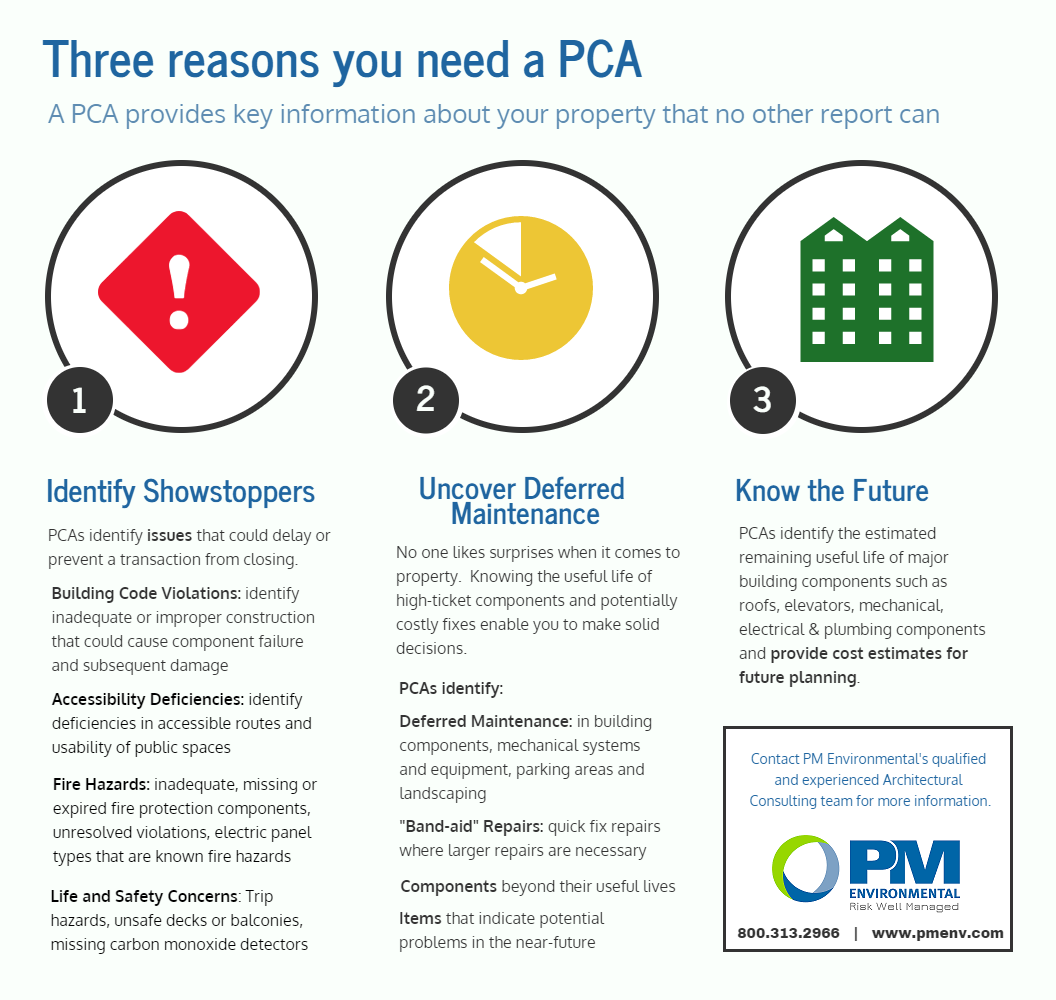Future Shock: Property Condition Assessments (PCAs) can be the best tool to prevent costly surprises on property investments
The less you know the greater the risk. For those looking to buy, lend on or invest in a building or property, the best tool to prevent costly surprises related to potential defects and deferred maintenance is a Property Condition Assessment, or PCA.
A PCA is a report that contains information about the physical condition of a property or building. PCAs are performed in accordance an American Society of Material Testing (ASTM) E2108 Standard, which is the only nationally and internationally recognized standard for the inspection and reporting of the condition of commercial property.
An inspector will assess the property’s electrical system, heating, air conditioning, ventilation, plumbing, roofing, and insulation, as well as evaluate general code compliance, and provide a detailed report of all the current and future defects and issues. A PCA report requires a site walk-through, document research and review, and interviews with facility managers and others familiar with the property.
“As inspectors, we can uncover unseen problems during our thorough inspection of a building because we enter ‘hidden’ areas in a building, such as attics and crawl spaces, which are often overlooked,” said Victor Tvedten, Manager of Architectural Consulting at PM Environmental.
For lenders, PCAs offer insight about the way a borrower treats their assets and his or her ability to make payments. A poorly maintained building can indicate a lack of funds for repairs, which may translate into difficulty repaying a loan. Also, without regular maintenance, property that serves as collateral can lose value.
“You might have costs for obvious things like repainting a faded exterior, resurfacing a deteriorated parking area and replacing worn flooring,” said Eric Guikema, Architectural Consultant at PM Environmental. “But other conditions (and costs) that might be harder to see are poor roof conditions, HVAC system components and rooftop units that might be beyond their typical useful life, structural issues, building or fire code violations that require immediate action,” he said.
Though often required by lenders as part of CRE transaction due diligence, PCAs can be just as valuable to purchasers. A PCA is a tool for negotiating a fair price. These reports help you understand the issues and the potential costs associated with owning a property, and provide basis for price negotiation.
PCAs can be useful for sellers as well. Those who take good care of their property can get a PCA done to show how little may need to be invested over the reserve term of a loan, according to Guikema.
Regardless of the motive, a PCA report is only as good as the skill of the professional conducting it. To ensure the highest quality report, it is best to hire only experienced providers with registered architects or professional engineers on staff to review the project, inspect the asset, or both.
Updated from article originally published 07/07/2014




